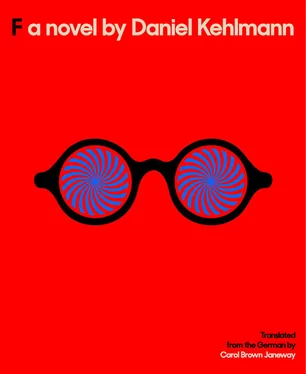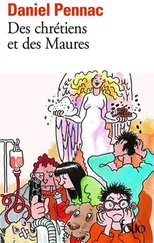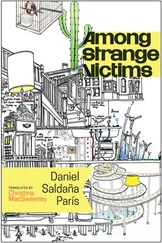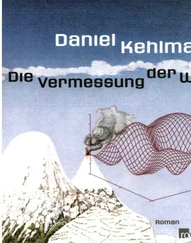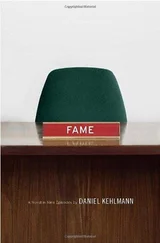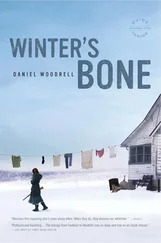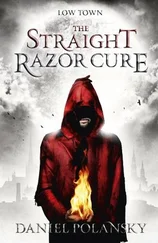“I don’t watch TV. I watch DVDs. Lena’s cousin burned us a copy of Star Wars yesterday.”
“Nobody can say why the world exists, the world doesn’t need a reason. Mirso Kapus won the biggest TV award.”
“Things would be so much simpler if it didn’t exist.” Marie crawled under the bedclothes. “All the people and cars and trees and stars. And all the ants and bears and the sand in the desert and the sand on other planets and the water and Georg and the Chinese and everything else. There’s so much of it!”
“Elke can grow and develop. The story can go in all sorts of directions.”
It wasn’t totally dark under the bedclothes; a little light could make its way in. “Can I sleep here?”
“Not today. I’ve got to learn this thing.”
“But it’s only three pages.” Marie tugged on the blanket a bit so as to be able to breathe better. Through the crack she could see Mama’s dressing table with the mirror, she saw the picture with the teddy bear that had hung until recently in her father’s study, and she saw one corner of the window.
“Three pages or twenty or a hundred — that’s not the point,” said Mama in irritation. “You have to come to grips with a role, find your way into it.”
Marie closed her eyes. Her limbs felt heavy. She heard Mama murmur, “He is my husband, the father of my children.” Then she must have gone to sleep for a while, because Mama shook her gently and then she was holding her hand and feeling her way along the hall. In the nursery Mama helped her off with her shirt, jeans, and underwear, pulled on her pajamas, put her into bed, covered her up, and gave her a kiss, so that her hair tickled her cheek. And all the time Marie was thinking that she hadn’t had to brush her teeth, Mama had forgotten, sometimes you got lucky. Then the door closed, and she was alone.
Pale spots of light from the streetlamps flickered on the blanket. She heard the apple tree scraping against the wall. She heard the wind. She pulled the covers over her head so that now all she heard was the rustle of the material, but if you lay still, really really still, and didn’t breathe, then you stopped hearing anything at all, there was no more world and there was almost no more Marie. This must be sort of what it was like to be a stone and lie there while time passed. A day, a year, a hundred years, a hundred thousand years. A hundred times a hundred thousand years.
All the same, a day was a long time. So many days still until the holidays came around, so many more until Christmas, and so many years until you were grown up. Every one of them full of days and every day full of hours, and every hour a whole hour long. How could they all go by, how had old people ever managed to get old? What did you do with all that time?
The trees were already a riot of color, but the leaves had not yet started to fall. Marie was coming home from school with her backpack slung over one shoulder and her cell phone in one hand when she saw that there was a man waiting at the garden gate.
“Marie?”
She nodded.
“Do you have some time?”
Arthur was tall and pale and stood leaning slightly to one side, as if he had back pain. His hair was a mess. He held the car door open for her; the seats smelled of new leather, and there was no dirt on the floor, not even the tiniest scrap of paper.
It had been two months since Marie had received his letter. It was the first proper letter she’d ever had in her life, and Ligurna had simply laid it next to her plate, as if it were nothing special. But Ligurna had given up being interested in what went on in the household: since Mama had given her her notice, the food tasted even worse than before and dust was collecting on the furniture. They weren’t going to be able to hold on to the house for very much longer either, said Mama, even with help from the grandparents it was too expensive. Mama was sad about this, but Marie was not. She had never liked it.
The envelope had held a single sheet, on which the handwriting was astoundingly legible. Unfortunately, wrote Arthur, they still didn’t know each other, but she could get in touch with him at any time. Under this was an email address, and under that was his signature.
Dear Arthur , she had replied, thank you for your letter, this is Marie, how are you? This is my email address. With warm regards, Marie .
The answer came a week later. He wanted to know what day her birthday was, what class she was in, and whether she liked school or not, who she sat next to, what the name was of her dumbest teacher, which TV programs she liked best and liked least, if she liked arithmetic, if she liked her father, if she liked her mother, what she thought of Ivan and Martin, what her favorite color was, if rain made her depressed, how often she thought about Ivan’s disappearance, if she thought people should be allowed to eat meat, if she thought Wednesdays were better than Mondays, and, if so, were they always better or only sometimes, and if she thought it was better to be subject to a king, a president, or no one at all. He asked about balloons, and books, he asked about teddy bears and dolls, he asked about her friends. He asked why she had answered his questions so far, he asked her not to feel compelled to answer them, he thanked her for answering him, and ended with a brief salute, without having given away a single thing about himself.
She had only recently been given her own phone. It lay in her hand, red, smooth, and cool to the touch, flat at the back, the entire front forming the screen, but she wasn’t yet used to typing without keys. You kept touching the wrong place, the spell-check program kept on replacing the words you’d written with others that made no sense, but she typed and she typed. She was thirteen now, questions weren’t a problem anymore. When two days had gone by without a reply, she wrote, Dear Arthur, did you get my email, how are you? Can we meet? With warm regards, Marie .
The car ran almost soundlessly as she looked around. She didn’t know this part of town and had no idea where her grandfather was taking her. Plaster was peeling off the walls and the street was littered with discarded cans.
“In the meantime, has there been any word?” asked Arthur.
She immediately realized he was talking about Ivan. “No, but there was an article recently.”
She began to search on her phone. Bookmarks, lists of links, ah, here it was: www.Art-Review-Online.com/sebastianzollnersopinion/eulenboeck. She cleared her throat. She liked reading aloud and was always pleased when her turn came in school, even if she pretended she found it embarrassing, because who wanted to be seen as a suck-up. She pronounced everything right, she rarely made mistakes and hardly even stuttered when she came to the hard words. She would never be as beautiful as Mama, or become an actress, but her voice was faultless.
What does it say about our fragmented society that Heinrich Eulenboeck of all people is our country’s artist of the hour? Are we in such need of a dandy for the middle classes, are we really so terrified of uncertainty, that we find it necessary to encase ourselves in the protective armor of irony? Obviously the answer is yes. Few artists in this crisis were able to maintain their prices; almost none of them were able to increase them. Scared collectors preferred to tread lightly and invested in bricks and mortar or gold nuggets they could keep in a safe in the cellar. Blue-chip painters became as rare as pink elephants. So how did this artisanal, rock-solid classical irony suddenly feel itself being snatched out of the hands of dealers and auction houses like hotcakes?
“Let’s face it,” says the chief curator of the Free Gallery in Bochum, Hans-Egon Eggert, “it’s all about the new estate executor and his battle plan: do a hard U-turn race to cash in.” The background: since August of last year, Ivan Friedland, the go-get-’em heir of the Old Master, has vanished without a trace. “Friedland’s main claim to fame was his tending of Eulenboeck’s reputation,” continued Eggert. “But now the focus of attention has shifted.” Karl Bankel, the director of Hamburg’s Koptman Museum, is even more critical: “Looking after the opus of an important artist is a highly complex task. Very few people are up to it. Ivan Friedland was not. His successor is even less so.”
Читать дальше
